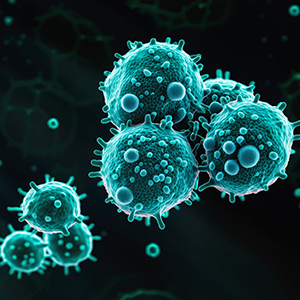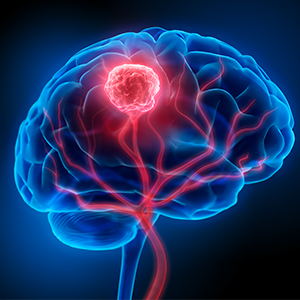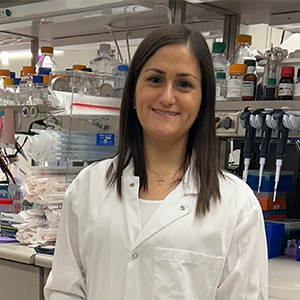-
Mayo scientists researching ‘beyond DNA’ to advance personalized medicine

As the nation marks National DNA Day on Sunday, April 25 — a day that commemorates the discovery of DNA's double helix in 1953 and the completion of the Human Genome Project in 2003 — Mayo Clinic physicians and researchers will continue to closely collaborate to push the boundaries of precision medicine in the areas of cancer, rare and undiagnosed diseases, and predictive genomics.
Mayo Clinic has spent decades exploring and sequencing the human genome, allowing doctors to tailor a range of therapies to a patient's genes. Now researchers in Mayo Clinic's Center for Individualized Medicine will continue taking the achievement a step further ― beyond DNA ― and focusing on "multi-omics" data in their search for answers, including proteomics, the study of proteins in a cell; microbiome, the study of bacteria, fungi, protozoa and viruses that live inside the body; and metabolomics, the study of chemical processes to identify the underlying causes of diseases.
We asked five researchers within the Center for Individualized Medicine to reflect on the landmark achievements of DNA discovery and how it has affected their research and ability to precisely diagnose, treat and predict disease for patients.
DNA and blood diseases
Mrinal Patnaik, M.B.B.S., is a hematologist in the Center for Individualized Medicine and Division of Hematology who specializes in diagnosing, treating and preventing blood diseases.
The unravelling of the DNA double helix is one of the most important discoveries known to mankind. This laid the foundation for cellular and molecular biology, allowing us to interrogate the genome and the epigenome with great precision and remarkable depth. Using this knowledge and a plethora of advancing techniques, we are now able to precisely understand the molecular architecture and pathobiology of several human diseases, in particular cancer. As the director of the Center for Individualized Medicine Epigenomics program, we in particular try to understand and define gene regulation from factors interacting with the double helix. With techniques available in our lab, we can study heritable changes in gene expression and various gene interactions, better understanding human health and disease.
DNA and the microbiome
Marina Walther-Antonio, Ph.D., is an associate consultant in the department of Surgery, with a joint appointment in the Department of Obstetrics and Gynecology.
It is difficult to think of a more impactful scientific discovery than that revealing the structure of DNA. The understanding and ability to manipulate genetic and genomic information that followed transformed biological sciences beyond recognition. This was the time when the evolutionary engine behind genetic variation (mutations) and heritability materialized into a concrete and graspable entity ― a complex entity to grasp nevertheless and one that we still do not entirely comprehend almost 70 years later. But we have come a very, very long way.
We have now mapped the human genome, which allows us to understand and interfere with genetic variants that cause disease, leading to interventions that are life transforming and life saving. But perhaps less obvious and just as important, is the scientific revolution that all of the DNA-related findings triggered and enabled. The methodologies, concepts, database infrastructure and expert domains developed through the last decades laid the foundations to the new areas of knowledge that followed ― beyond DNA.
While genomics gives us the realm of what is possible and can happen, transcriptomics gives us what is happening, metabolomics and proteomics give us what has happened, epigenomics what is allowed to happen, and the microbiome shows us that we are never alone in the midst of it all ― and that human multi-omics are not the only ones to worry about when it comes to our health and avoiding disease.
We are excited to contribute to this new era of discoveries that encompass the intersection of all these layers of complexity within a single patient, down to the single human and bacterial cell level of resolution. Most importantly, a word of gratitude to our patients and volunteers who place their trust in the scientists, and provide the information and samples needed to achieve all of these advancements. Thank you for trusting us with your DNA and beyond. You have allowed this realm of possibilities.
DNA and artificial intelligence (AI)
John Kalantari, Ph.D., is a machine learning scientist in the center's Microbiome program who specializes in AI and causal machine learning.
Following the completion of the Human Genome Project in 2003, many referred to this event as the moment where the code of human life was first revealed. As remarkable as that achievement was, it was just the beginning of a scientific expedition to better understand and improve human health. But there are many more secrets of life embedded in that code that still need to be unlocked. These include the hidden biological patterns and rules governing cancer and complex disease progression. The fields of AI and machine learning are highly valuable in this pursuit in that they accelerate the time it takes to get from information to insight.
At Mayo Clinic's Biomedical Artificial General Intelligence Laboratory, we routinely use AI and machine learning alongside the wealth of knowledge and multiomics data generated since 2003 in the discovery of causal disease mechanisms and the development of new therapeutic targets for cancer screening, treatment and prevention. The human genome and AI are among the many tools in our scientific toolkit that enable continued innovation and discovery in personalized medicine. Both are necessary in developing new precision treatments that can reach patients faster and more fairly.
DNA and infectious diseases
Robin Patel, M.D., is director of Mayo Clinic's Infectious Diseases Research Laboratory and the Elizabeth P. and Robert E. Allen Professor of Individualized Medicine.
DNA has revolutionized infectious diseases diagnostics and by inference our understanding of and ability to treat, prevent and cure infectious diseases. In 1983, a technique to amplify DNA was described, separating microbial diagnostics into those before and after what is today referred to as nucleic acid amplification tests, or NAATs. Beginning less than a decade later, NAATs were adopted into routine clinical practice at Mayo Clinic, making possible diagnoses of life-threatening and treatable infections and in many cases, abrogating the need for invasive procedures.
Diagnosis and ultimately treatment of HIV and hepatitis C virus infections would not have been possible absent NAATs. Multiplexed NAATs ensued, as did faster ones, alongside automation and incorporation of this technology onto small, easy-to-use instruments that provide rapid results. Advances in DNA sequencing have also provided infectious diseases diagnostics. With the advent of capillary sequencers in the 1990s, identification of cultured bacteria with 16S ribosomal RNA gene polymerase chain reaction/Sanger sequencing was adopted into clinical practice at Mayo Clinic.
Since 2017, Mayo Clinic has routinely applied this approach to clinical specimens, for example to diagnose the cause of infective endocarditis by testing heart valves. The advent of next-generation sequencing provided further advances. Beginning in 2017, Mayo Clinic began sequencing and comparing entire genomes of Staphylococcus aureus and in the years that followed 15 other species of bacteria to identify outbreaks in routine clinical practice. Mayo Clinic recently incorporated next-generation sequencing to interrogate the 16S ribosomal RNA gene in its direct-from-specimen polymerase chain reaction/sequencing testing.
Mayo Clinic has also studied shotgun metagenomic whole-genome sequencing, having performed one of the largest clinical studies of this method to date. This approach sequences all DNA ― and depending on how it's performed, sometimes RNA, as well ― in a clinical sample, allowing detection of any type of microorganisms present, and if sequencing is deep enough, interrogation of associated resistance genes and mutations, enabling prediction of antimicrobial susceptibility. These advances and many others in microbiology continue, all predicated on the discovery of DNA.
DNA and cancer
Rory Smoot, M.D., is chair or the Division of Surgical Research and vice chair for Research in the Department of Surgery
The discovery of the structure of the DNA double helix was truly monumental. It ignited an unparalleled expansion in understanding human disease and the mechanisms underlying them. As part of the beyond DNA" initiative at Mayo Clinic's Center for Individualized Medicine, we are now building on these bedrocks to delve even deeper into cholangiocarcinoma, a cancer of the bile ducts for which Mayo Clinic has unrivaled expertise. We are applying advanced protein evaluation in these tumors both with and without therapy to understand new treatment options, how the tumors are responding to treatment, and additional treatments that can or should be added to increase the response of the tumors.
Transitioning genomic medicine from the lab to the clinic
The discovery of DNA's double helix and the completion of the Human Genome Project have contributed a wealth of knowledge and medical advances. Now the key to accelerating these discoveries in individualized medicine and unlocking the secrets of disease lies beyond DNA.
"The Human Genome Project was not a race to the finish line. It was a race to the starting line," says Richard Weinshilboum, M.D., interim director for the Center for Individualized Medicine. "Genomics and all of the multiple technical advances like proteomics, metabolomics, microbiome and transcriptomics are now being applied at Mayo Clinic to diagnose disease, to treat disease and eventually to prevent disease."
Learn more
Read more stories about advances in individualized medicine.
Register to get weekly updates from the Mayo Clinic Center for Individualized Medicine blog.
Join the conversation
For more information on the Mayo Clinic Center for Individualized Medicine, or visit Twitter at @MayoClinicCIM.

Related Articles












